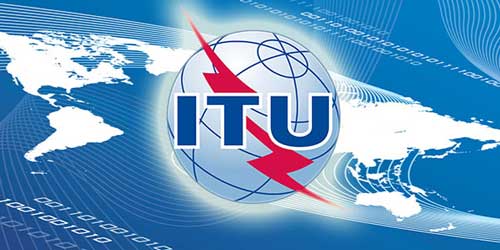The International Telecommunication Union (ITU) is a specialized agency of the United Nations (UN) that is responsible for issues that concern Information and Communication Technologies (ICTs). The ICTs coordinates the shared global use of the radio spectrum, promotes international cooperation in assigning satellite orbits, works to improve telecommunication infrastructure in the developing world, and assists in the development and coordination of worldwide technical standards.
Founded in Paris in 1865 as the International Telegraph Union, International Telecommunication Union took its present name in 1934. In 1947, International Telecommunication Union became a specialized agency of the United Nations. ITU also organizes TELECOM events and was the lead organizing agency of the World Summit on the Information Society.
Must Read: United Nations (UN) and its Principal Organs
The International Telecommunication Union mission: bringing the benefits of ICT to all the world’s inhabitants
ITU’s mission is to enable the growth and sustained development of telecommunications and information networks, and to facilitate universal access so that people everywhere can participate in, and benefit from, the emerging information society and global economy. ITU’s work helps deploy infrastructure, achieve connectivity, and provide efficient telecommunication services worldwide.
The ability to communicate freely is a pre-requisite for a more equitable, prosperous and peaceful world. And International Telecommunication Union assists in mobilizing the technical, financial and human resources needed to make this vision a reality.
The International Telecommunication Union is active in areas including broadband Internet, latest-generation wireless technologies, aeronautical and maritime navigation, radio astronomy, satellite-based meteorology, convergence in fixed-mobile phone, Internet access, data, voice, TV broadcasting, and next-generation networks.
International Telecommunication Union, based in Geneva, Switzerland, is a member of the United Nations Development Group. Its membership includes 193 Member States and around 700 Sector Members and Associates.
Also Read: United Nations Educational Scientific and Cultural Organisation (UNESCO)
Sectors of The International Telecommunication Union
The International Telecommunication Union comprises three sectors, each managing a different aspect of the matters handled by the Union, as well as ITU Telecom. The sectors were created during the restructuring of ITU at its 1992 Plenipotentiary Conference.
Radio communication (ITU-R)
Managing the international radio-frequency spectrum and satellite orbit resources is at the heart of the work of the International Telecommunication Union Radio communication Sector (ITU-R).
Standardization (ITU-T)
Standardization was the original purpose of International Telecommunication Union when it was founded. This sector remains responsible global telecommunications standards, except for radio. Prior to 1992 it was known as the International Telephone and Telegraph Consultative Committee or CCITT.
Development (ITU-D)
Established to help spread equitable, sustainable and affordable access to information and communication technologies (ICT)
Must Read: The United Nations Environment Programme (UNEP)
A permanent General Secretariat, headed by the Secretary General, manages the day-to-day work of the Union and its sector. The International Telecommunication Union is headed by a Secretary-General, who is elected to a four-year term by the member states at the ITU Plenipotentiary Conference.
At the 17th International Telecommunication Union Plenipotentiary Conference (2006) in Antalya, Turkey, the ITU’s member states elected Dr Hamadoun Touré of Malias Secretary-General of the Union. He was re-elected for a second four-year term at the 18th ITU Plenipotentiary Conference (2010) in Guadalajara, Mexico.
Membership of International Telecommunication Union is open to governments, which may join the Union as Member States, as well as to private organizations like carriers, equipment manufacturers, funding bodies, research and development organizations and international and regional telecommunication organizations, which can join ITU as non-voting Sector Members.
There are 193 member states of the International Telecommunication Union, which includes 192 UN member states (all except Palau) and the Vatican City. The most recent member state to join the ITU is South Sudan, which became a member on 14 July 2011. The Republic of China (Taiwan) was blocked from membership by the People’s Republic of China, but nevertheless received a country code, being listed as “Taiwan, China”.Palestine was admitted as an observer in 2010.
International Telecommunication Union is at the very heart of the ICT sector, brokering agreement on technologies, services, and allocation of global resources like radio-frequency spectrum and satellite orbital positions, to create a seamless global communications system that’s robust, reliable, and constantly evolving.
ITU’s biggest achievement is undoubtedly the pivotal role it has played in the creation of the international telecommunications network – the largest man-made artifact ever created. The International Telecommunication Union serves as an impartial international forum for dialogue between government and industry players on technology, policy and economic issues, for the benefit of the global telecommunication community.
Don’t Miss: United Nations International Children’s Emergency Fund (UNICEF)






